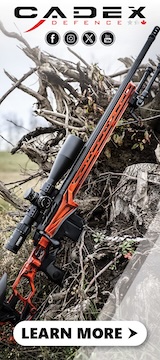The reason why Canadian guided hunts cost considerably more than international guided hunts comes down primarily to two factors. Private land vs public and Climate.
1) International hunts are usually on privately owned land or ranches, whereas Canadian hunts are usually on Crown land which is not privately owned. This is a significant factor because an outfitter who owns a large enough ranch, often tens of thousand of acres, can fence off the area, create a perfect mix of habitat, improve conditions for wild(?) game, control harvest of species and thus more closely manage the land for production of wildlife or game. They may also stock species that are more desirable to hunt, may command higher prices, and also survive more successfully under such conditions that the game preserve offers. In other words they can produce game to meet the demand of hunters better, and this can bring prices down.
In contrast, the Canadian government has little to no involvement in the direct management of wildlife beyond issuing tags and enforcing game regulations. In Canada tags are cheap and hunting regulations liberal. This makes it very difficult to manage wildlife for high quality without negatively affecting quantity.
In Canada, wildlife is essentially a free-for-all and it must compete with all other uses of the land at the same time. Mainly forestry, mining, agriculture and recreational development. Take for example snow geese. There is no limit on these birds and has been like this for 20 years. Manitoba sells a mule deer tag now for $5. Is this all a deer is worth?
All these other uses allow one to own the resource or asset and sell it. In Canada you cannot own wildlife however you may still own a hunting ranch in a very limited capacity However game preserves or hunt farms, call them what you like, are very heavily regulated and this has the effect of making it expensive to hunt. Although this is very expensive and generally not viable like it is internationally, even if you owned a hunt ranch in Canada you would not be able to control the weather. This brings me to my second point.
2) Climate. Canada has an incredibly harsh climate with winters that can easily kill 50% of a species population during a bad year. Canada has many ecotypes from boreal forest and mountains to plains and tundra. Species sought after by big game hunters are far fewer and population densities are generally lower. Animals in Canada are highly adapted to survive in their habitat.
The example you used of Big horn sheep hunt costing over $100,000 serves as good example of scarcity. Big horns are found in a small area geographically speaking, and trophy big horn are even scarcer. The scarcer the trophy the higher the price. Caribou for example live mostly in the tundra except of course the woodland caribou which is nearly extinct. Pronghorn antelope live on the plains and no where else. So if you want to find caribou you have to travel to the tundra and if you want to find pronghorn you travel to the plains.
In areas of the world that do not have such a harsh climate and differing ecological areas species are much more plentiful and less specialized to survive the varying changes in climate and foliage. These species that live in more favorable climates will have higher survival rates and thus can be bred much faster. Couple this with living in captivity so to speak, even if captivity is 20,000 or 30,000 acres or more, you have the ability to produce exponentially more big game than anything that can possibly be produced in Canada.
Hope this helps answer your question.




































































